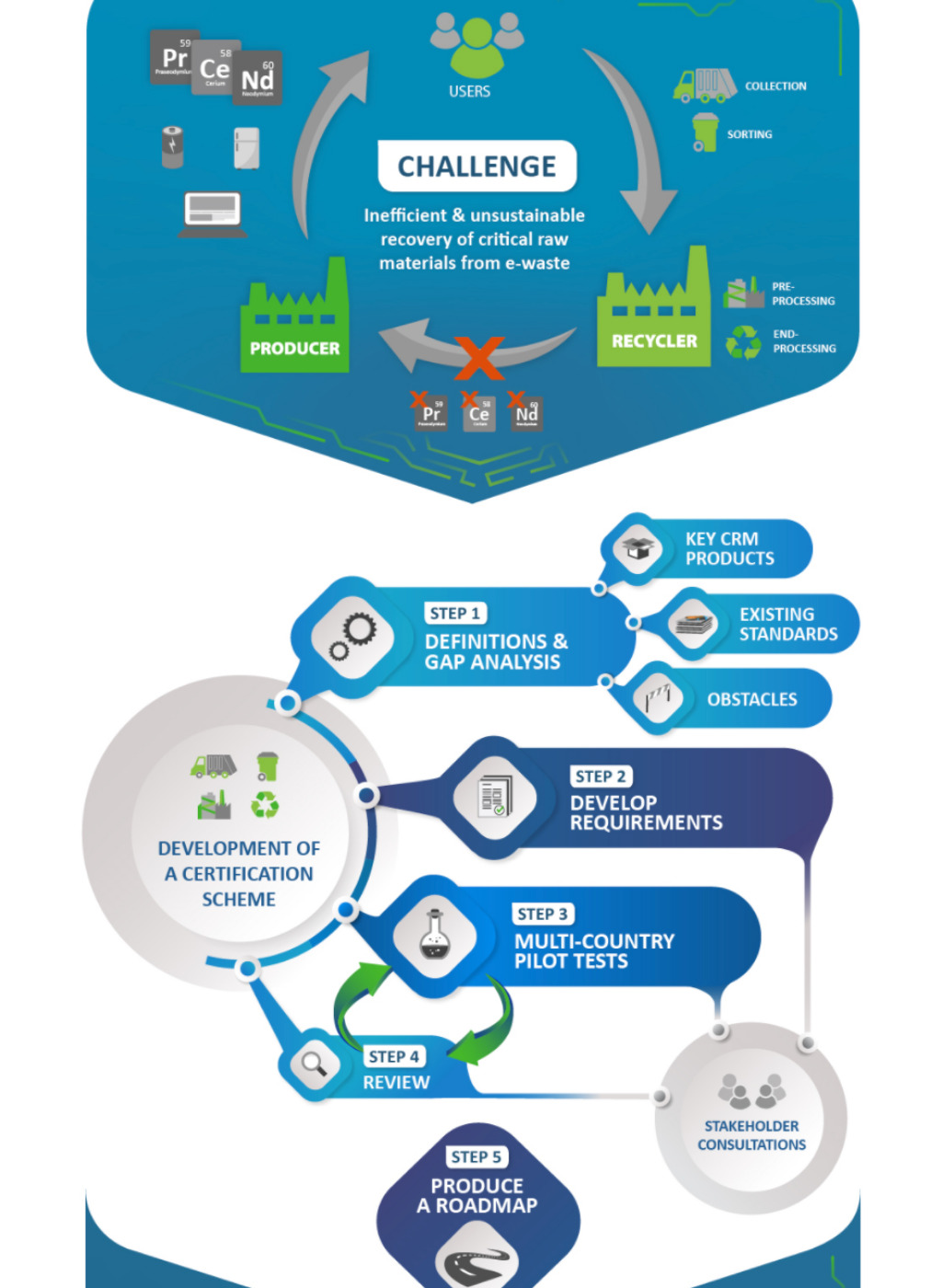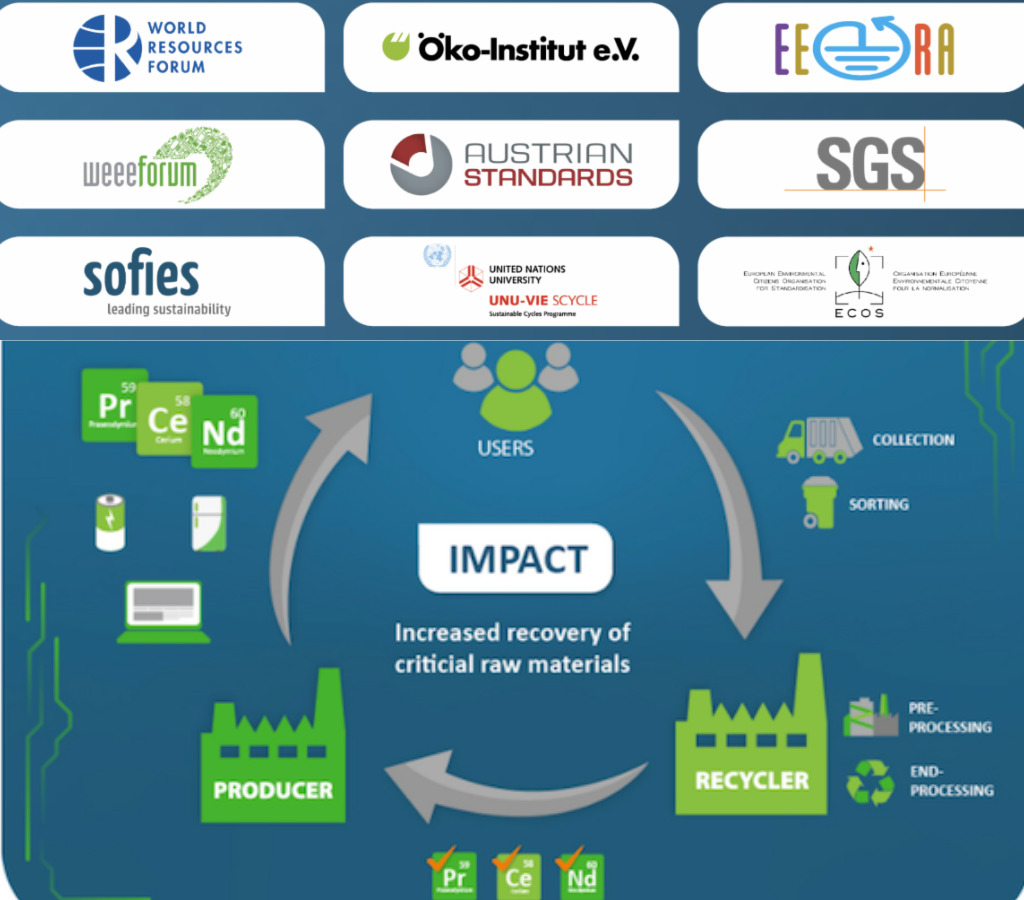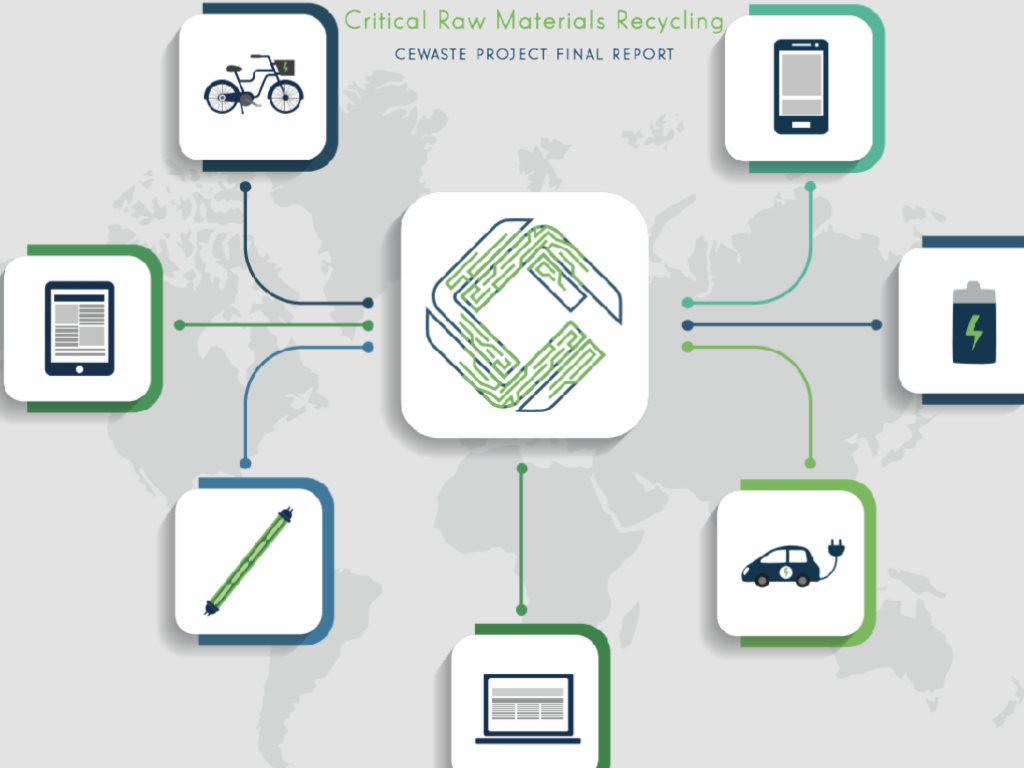Security Hazard: Experts Urge E.U. To Make The Recycling Of Critical Metals In E-Waste Mandatory By Law
4 Mins Read
According to a new U.N.-backed report funded by the E.U., the CEWASTE consortium assigned the recycling and reuse of specific elements in four electronic and electrical product categories as ‘critical’, and urged the E.U. to ensure that these metals are recycled to avoid possible raw material security issues that can arise from not doing so.
Led by the Switzerland-based World Resources Forum, a European consortium named CEWASTE is behind the new report that states that end-of-life circuit boards, specific magnets in disc drives and electric vehicles, EV and other special battery types, and fluorescent lamps are some of the many electrical and electronic products that hold critical raw materials (CRMs), calling for an urgent need to recycle these materials by passing a law.
Following E.U.’s 2020 action plan to reduce Europe’s dependency on third countries for CRMs, the report discusses the use of diversifying supply from primary and secondary sources and at the same time, upgrading the efficiency of resources and promoting circularity.
Once the recycle and reuse system in specific e-waste categories is made mandatory, it will help protect producers of electrical, electronic and other products from certain disruptions in the supply chain.
The CEWASTE consortium warns the E.U. that without these systems, the CRMs in these products can play a sensitive role in geopolitical matters and implementing the recycle model will ensure continuous supplies for regional manufacturing of electrical and electronic equipment (EEE) that is important for defense, generation of renewable energy, LEDs, other green tech, and to the competitiveness of European companies.
In a press release seen by Green Queen, the consortium said: “A European Union legal framework and certification scheme, coupled with broad financial measures will foster the investments needed to make recycling critical raw materials more commercially viable and Europe less reliant on outside supply sources. Acceptance by the manufacturing and recycling industry is also needed, as the standards will only work when there is widespread adoption.”

A European Union legal framework and certification scheme, coupled with broad financial measures will foster the investments needed to make recycling critical raw materials more commercially viable and Europe less reliant on outside supply sources
CEWASTE consortium in new report
However, at the moment, recycling products that contain CRMs is not profitable and low prices negatively affect any scope of improvement in European CRM recycling rates, which in many instances is close to zero.
In the report, the consortium identifies these gaps and proposes a 100% tested and upgraded certification scheme to collect, transport, process and recycle this critical e-waste, along with mechanisms to audit compliance.
The consortium added: “By adopting this report’s recommendations, the EU can be more self-sustaining, help drive the world’s green agenda and create new business opportunities at home.”
The report mentions the following equipment categories that carry huge quantities of CRMs to enable recycling –
- Printed circuit boards from IT equipment, hard disc drives and optical disc drives
- Batteries from WEEE and end of life vehicles
- Neodymium iron boron magnets from hard disc drives, and electrical engines of e-bikes, scooters and end-of-life vehicles (ELVs)
- Fluorescent powders from cathode ray tubes (CRTs; in TVs and monitors) and fluorescent lamps
Some processes are already in place for CRMs like palladium from printed circuit boards or cobalt from lithium-ion batteries and for the remaining ones, financial backing is needed to scale recycling infrastructure to reach cost-efficient operations.
By adopting this report’s recommendations, the EU can be more self-sustaining, help drive the world’s green agenda and create new business opportunities at home
CEWASTE consortium in new report
In addition to this, the report found that out of 60+ requirements in European e-waste-related standards, hardly few actually effectively address the collection of CRMs and to address this, the consortium proposed several additional technical, managerial, environmental, social and traceability requirements such as the EU 50625-series.
These proposals were tested at European firms in Italy, Spain, Belgium, Portugal, Switzerland, Turkey, Colombia, and Rwanda.
“Greater CRM recycling is a society-wide responsibility and challenge. The relevant authorities must improve the economic framework conditions to make it economically viable”, concluded the consortium.

CEWASTE project recommendations include the following:
- Legislate a requirement to recycle specific critical raw materials in e-waste
- Use market incentives to spur the economic viability of recovering CRMs and to stimulate the use of recovered CRMs in new products
- Develop platforms where demand for recycled components, materials and CRMs can meet supply
- Raise awareness of the need for CRM recycling
- Consolidate fractions of CRM-rich products into quantities more attractive for recyclers
- Improve access to information on CRM-rich components and monitor actual recycling
- Enforce rules around shipment of CRM-rich fractions outside the EU and respect of technical standards along the value chain
- Integrate CEWASTE norms and requirements into the European standard for e-waste treatment (EN 50625 series) and make the whole set legally binding
- Support more targeted private investments in new technology research and development
Elsewhere, recently electronic brands like Dell Technologies, Google, Microsoft, Vodafone, and other global organizations worth nearly $6 trillion in total market cap, collaborated together to set up the global Circular Electronics Partnership (CEP), a first-ever private sector alliance that will focus on circular electronics and build a sustainable future for these products by 2030.
Lead image courtesy of the CEWASTE Project Consortium.




